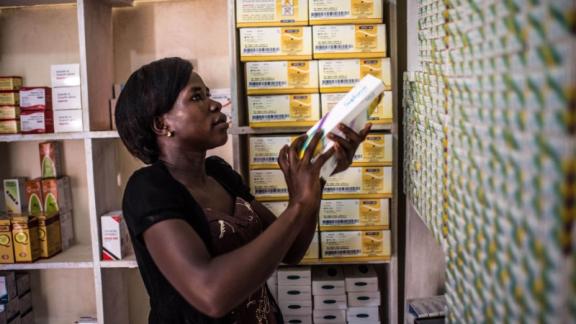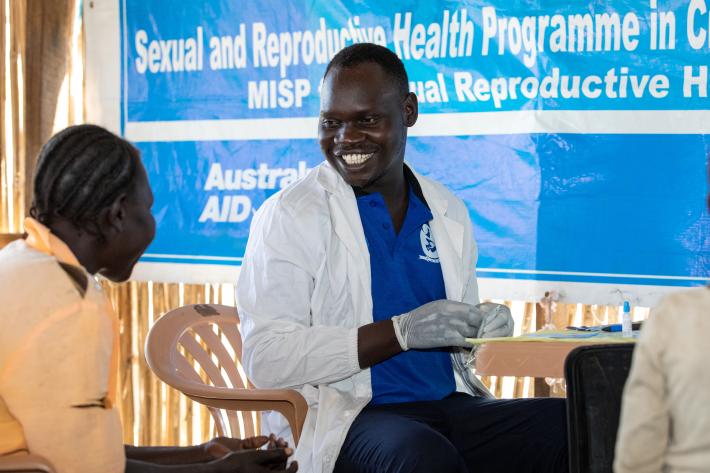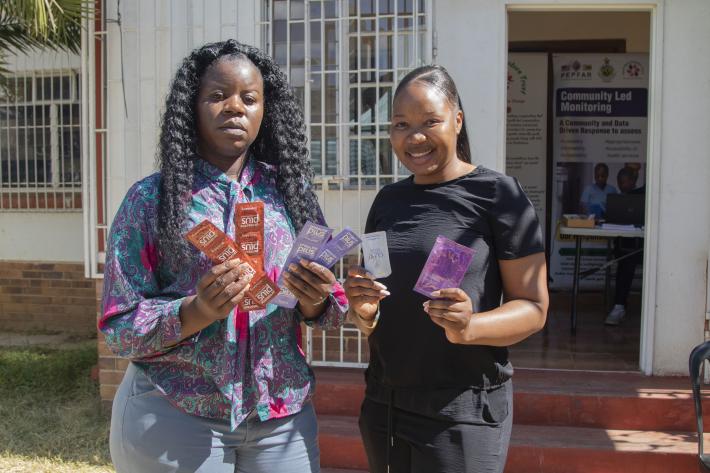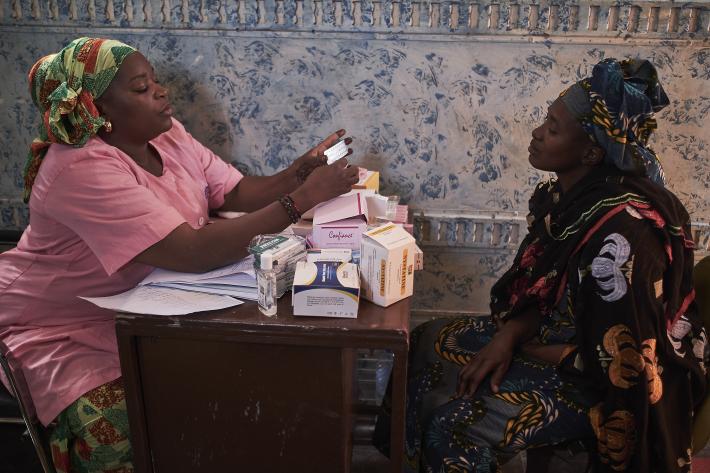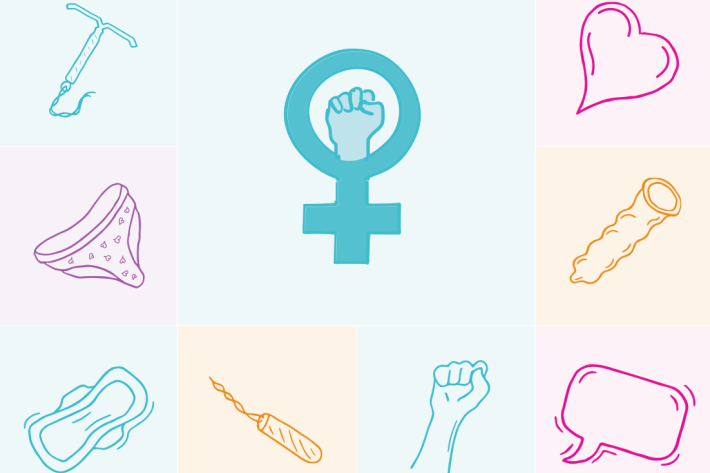Spotlight
A selection of resources from across the Federation

IMAP Statement on Preventing Female Genital Mutilation
This statement provides guidance to prevent, respond to and mitigate the impact of FGM.
Filter our resources by:


| 20 September 2019
Watch: Let's Talk About... Sex & Consent
"If it’s not an enthusiastic yes, take it as a no" "Consent is sexy" Our new series tackles five major topics: Sex & Disability, Sex & Pleasure, Sex & Consent, Sex Education and Sex & Social Media. In this episode, six young people tackle the often confusing subject of consent. Is consent a simple yes or no? Is consent black and white? How are we taught consent from a young age? In a lively and insightful way, each young person talks about their own experiences with consent and the lack of clarity around what it means, what it looks like and how you navigate the subject.
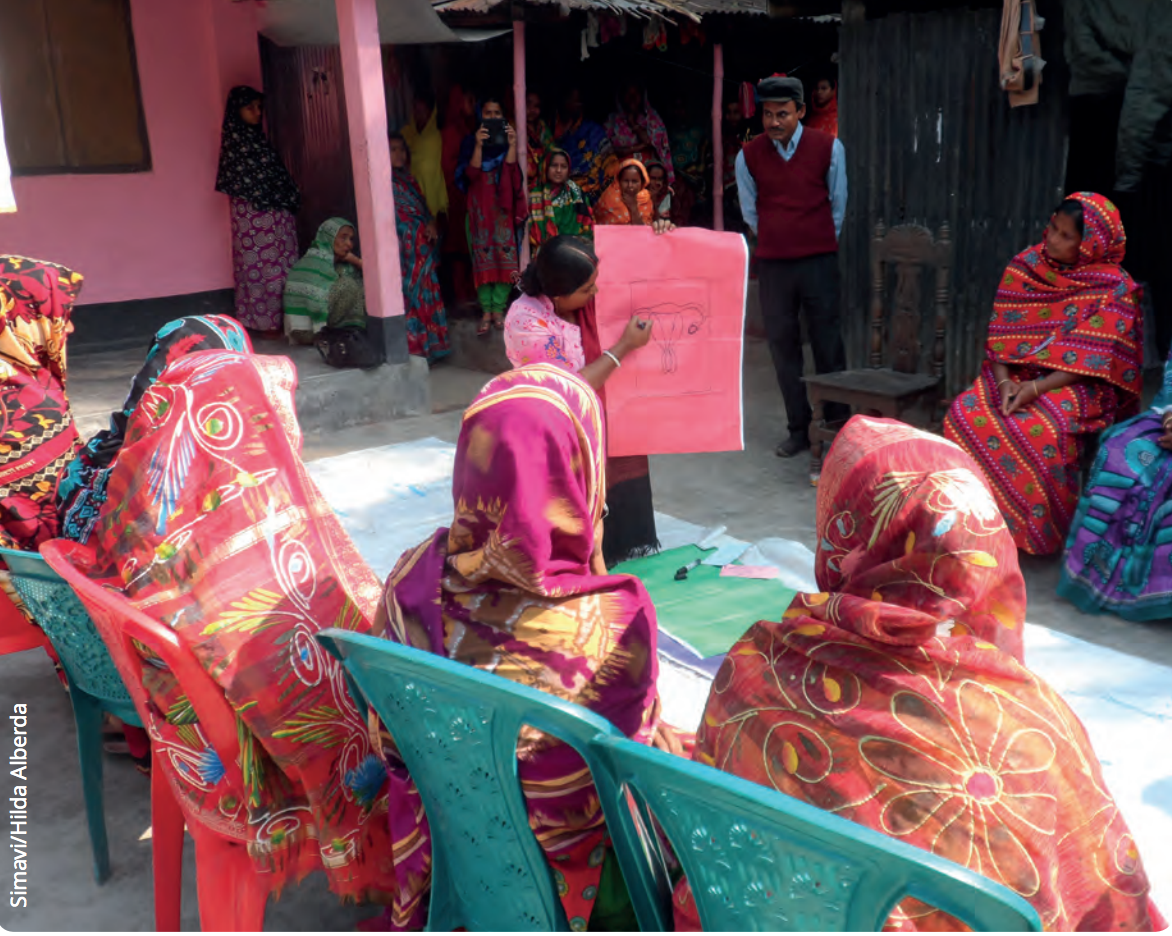
| 03 September 2019
A Shared Agenda: Exploring links between water, sanitation, hygiene, and SRHR in sustainable development
IPPF attended World Water Week Conference in Stockholm on 28-29 August and presented a reportthat we prepared together with WaterAid, MSI, IWHC and Simavi which demonstrates that combining WASH and SRHR bolsters health and human rights outcomes.
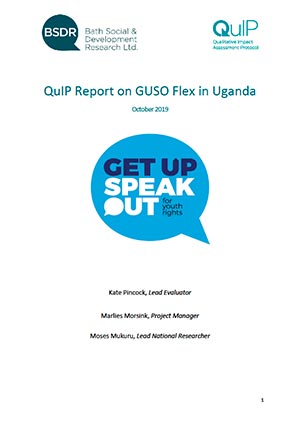
| 01 September 2019
Community Healthy Entrepreneurs Evaluation
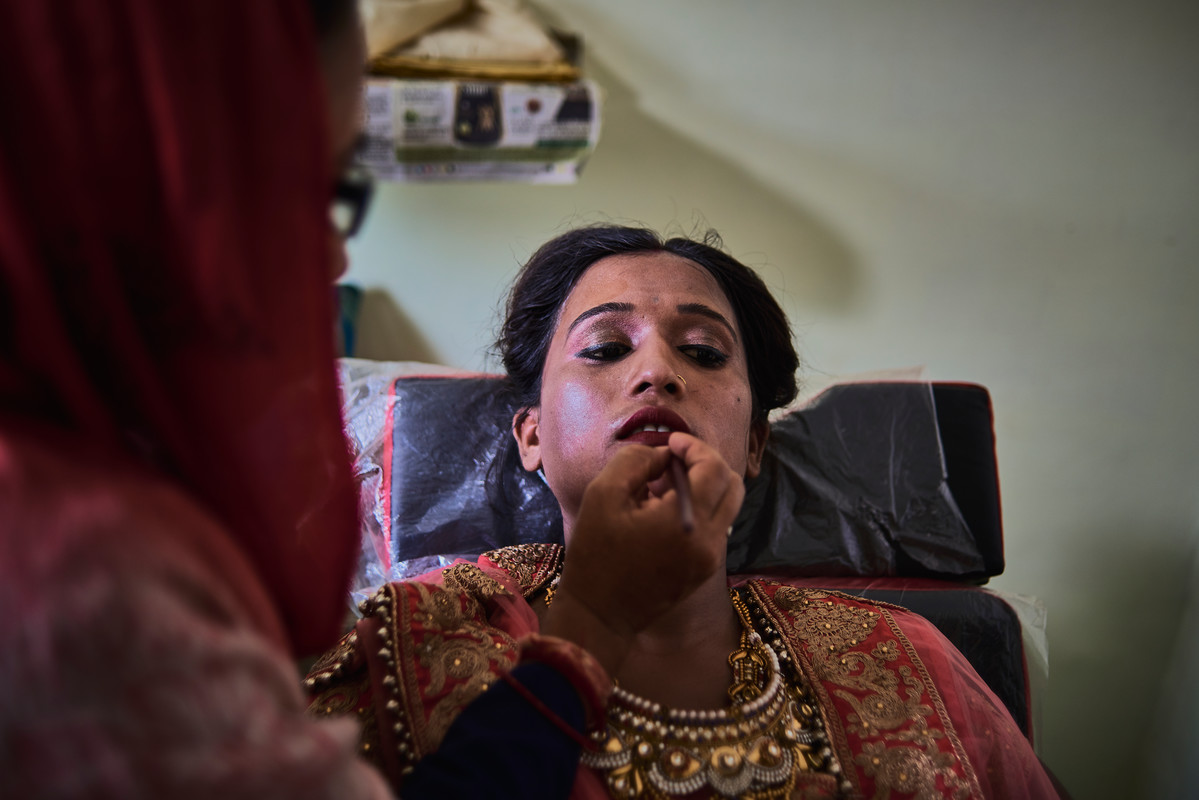
| 08 August 2019
Watch - Beauty Behind Bars: Life after prison for women in India
India is home to 20 female-only prisons, that have the capacity to hold just 5,000 inmates. Women currently make up 4% of India's prison population. Before they reach prison, many women have already experienced sexual and gender-based violence. Many inmates face discrimination and are often ostracized from their community and their families once they are released. Realizing a gap in care for women once released, the Family Planning Association of India (FPAI) have stepped in to ensure women are equipped with not only healthcare whilst in prison but life training skills. Skills that will financially support them and their children with or without the support of their families. Established in 1949, the Family Planning Association of India has provided life skills training ranging from beauty parlour related work to car mechanics to 768 women in six locations.
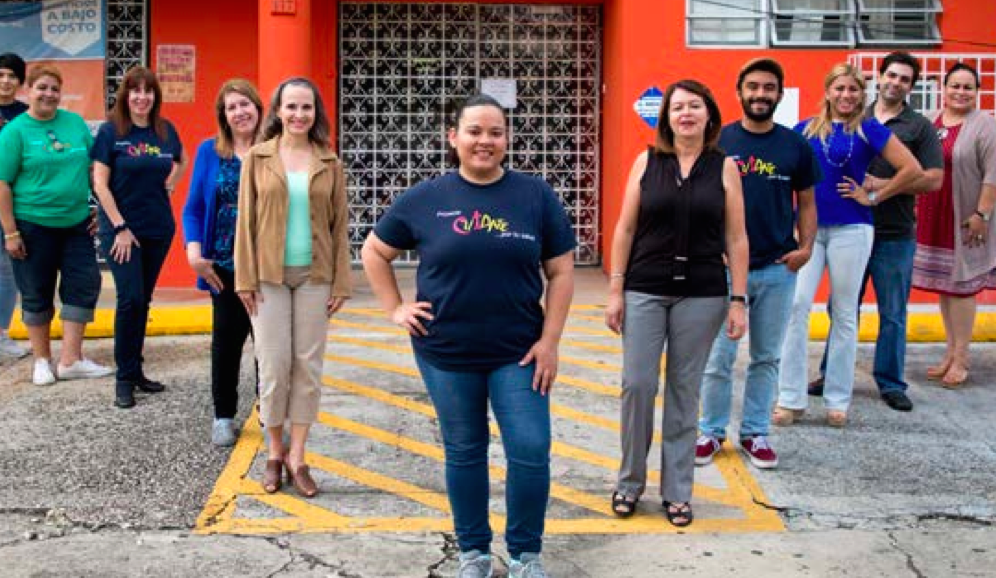
| 31 July 2019
Scaling up social franchising 2014-18
This report introduces you to IPPF’s social franchising work, theory of change and strategy. It provides a summary of investments and results by country. It presents an outline of our knowledge management and sharing as well as processes and results of monitoring and evaluating the work of the SFWG and the Scale Up Fund. We also document lessons learned and the way forward in enabling SRH services to achieve universal access to SRH and rights.
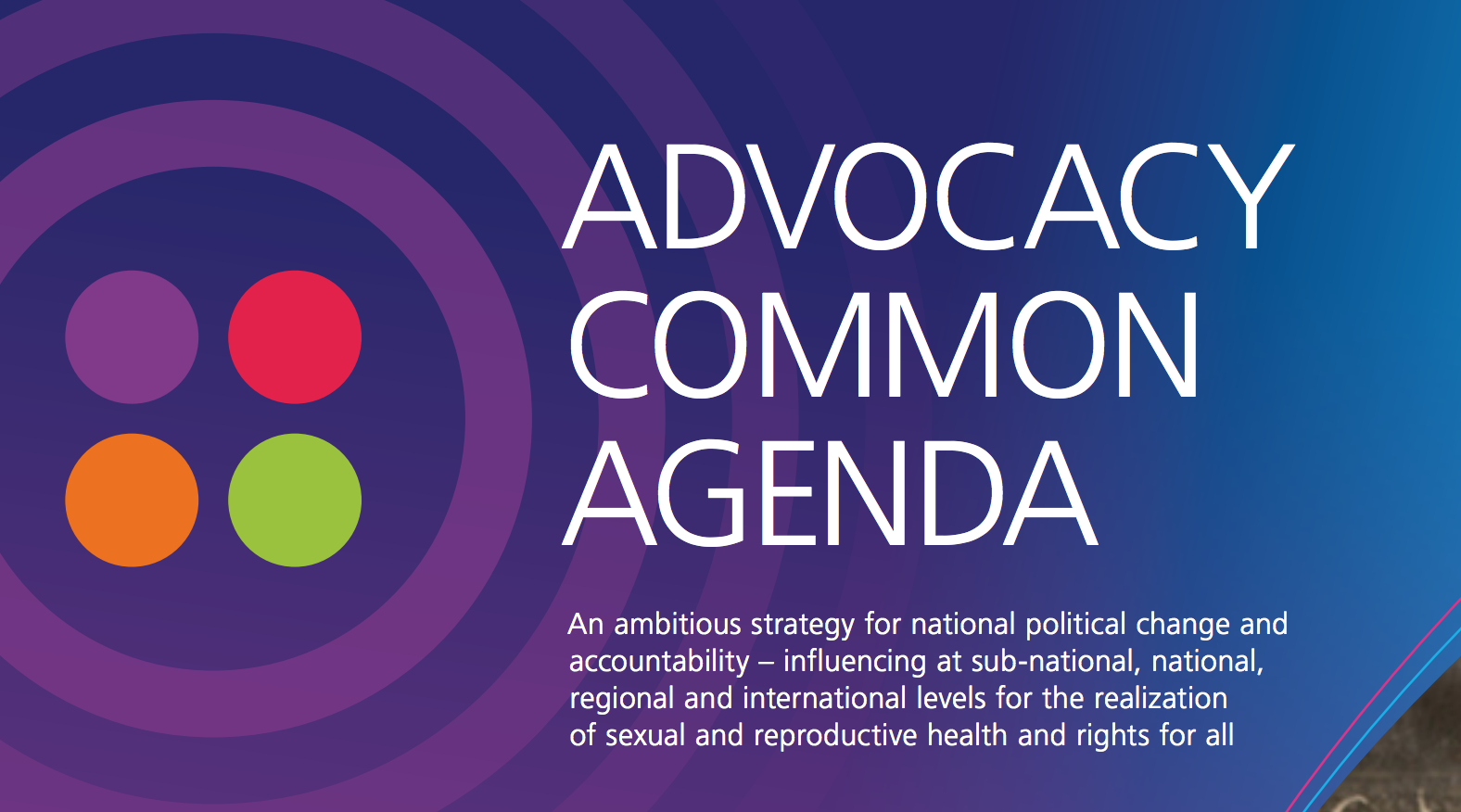
| 24 July 2019
IPPF's Advocacy Common Agenda
The Advocacy Common Agenda will guide our work at all levels of the Federation to achieve Outcome 1 of the IPPF Strategic Framework 2016–2022, namely to ensure that 100 governments respect, protect and fulfil sexual and reproductive rights and gender equality. In doing so, IPPF will contribute to the International Conference on Population and Development Programme of Action, and to the Sustainable Development Goals. The Advocacy Common Agenda is focused on achieving national political change, placing accountability at the centre. IPPF will influence governments to change or uphold laws and policies to ensure that endorsed international agreements are translated into national action to improve the lives of women and girls. We will build on the Federation’s existing skills and experience as a major provider of SRHR to the most vulnerable and underserved populations, and use our Federation presence in 170 countries to work at four interconnected levels of influence: sub-national, national, regional and international.
| 09 July 2019
IMAP statement on the ECHO trial
The body of evidence on possible increased risk of HIV acquisition with use of progestogen‑only contraception has remained mixed since 1991, with the greatest concern of an increased risk of HIV acquisition centred on the use of intramuscular depot‑medroxyprogesterone acetate (DMPA‑IM). Data on the risk of HIV acquisition and use of other highly effective contraceptives such as norethisterone enanthate (NET‑EN), hormonal implants, and hormonal and non‑hormonal IUDs are limited.2 And there are no data on subcutaneous DMPA (DMPA‑SC) and HIV risk. In 2016, an updated systematic review of epidemiological evidence on hormonal contraception and HIV acquisition concluded that there was a significant association between the use of DMPA and HIV acquisition and no increased HIV risk with oral contraceptive pills.3 The updated systematic review provided important data regarding DMPA users at high risk of HIV; however, confounding in these observational data could not be excluded. The historically mixed data and the need to control for confounding required further investigation into the association between use of progestogen‑only injectables and increased risk of HIV acquisition, using a more robust research design. This led to the development of the Evidence for Contraceptive Options and HIV Outcomes (ECHO) trial.

| 09 July 2019
Financial Statements 2018
Income for the year for the group increased by US$9.5 million (9%)to US$111.9 million due to a large increase in restricted income from US$30.3 million to US$54.1 million netted off against a decrease in unrestricted income of US$14.3 million. Total group expenditure increased by US$21.6 million to US$114.6 million which led to a group net operating deficit (combined for unrestricted and restricted funds) for the year of US$2.6 million. Total unrestricted expenditure of US$74.8 million includes grants to member associations and partners (US$42.0 million), group secretariat expenditure (US$28.9 million), and fundraising costs(US$3.3 million). The net operating unrestricted deficit for the year was US$17.0 million (2017 surplus: US$8.8 million). Total restricted expenditure of US$39.8 million includes grants to member associations and partners (US$25.2 million), group secretariat expenditure (US$14.0 million), and fundraising costs (US$0.5 million). There was a restricted surplus of US$14.4 million.
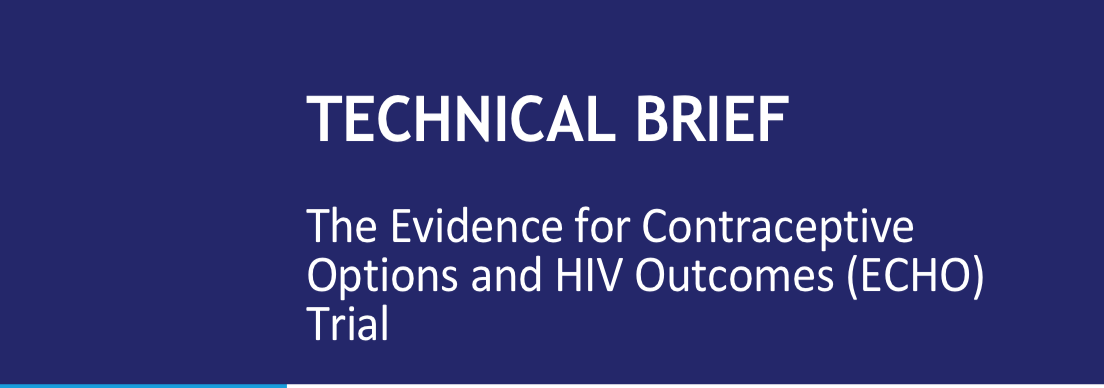
| 09 July 2019
IPPF Technical Brief on the ECHO trial
Since the early 1990s, the evidence has been inconclusive as to whether using hormonal contraception increases women’s risk of acquiring HIV, particularly among progestogen-only injectable users. Observational studies indicated that women using progestogen-only injectable contraceptive methods may be at higher risk of acquiring human immunodeficiency virus (HIV). The ECHO trial finds no link between HIV acquisition and the use of DMPA-IM, progestogen implant, and non-hormonal copper IUD.
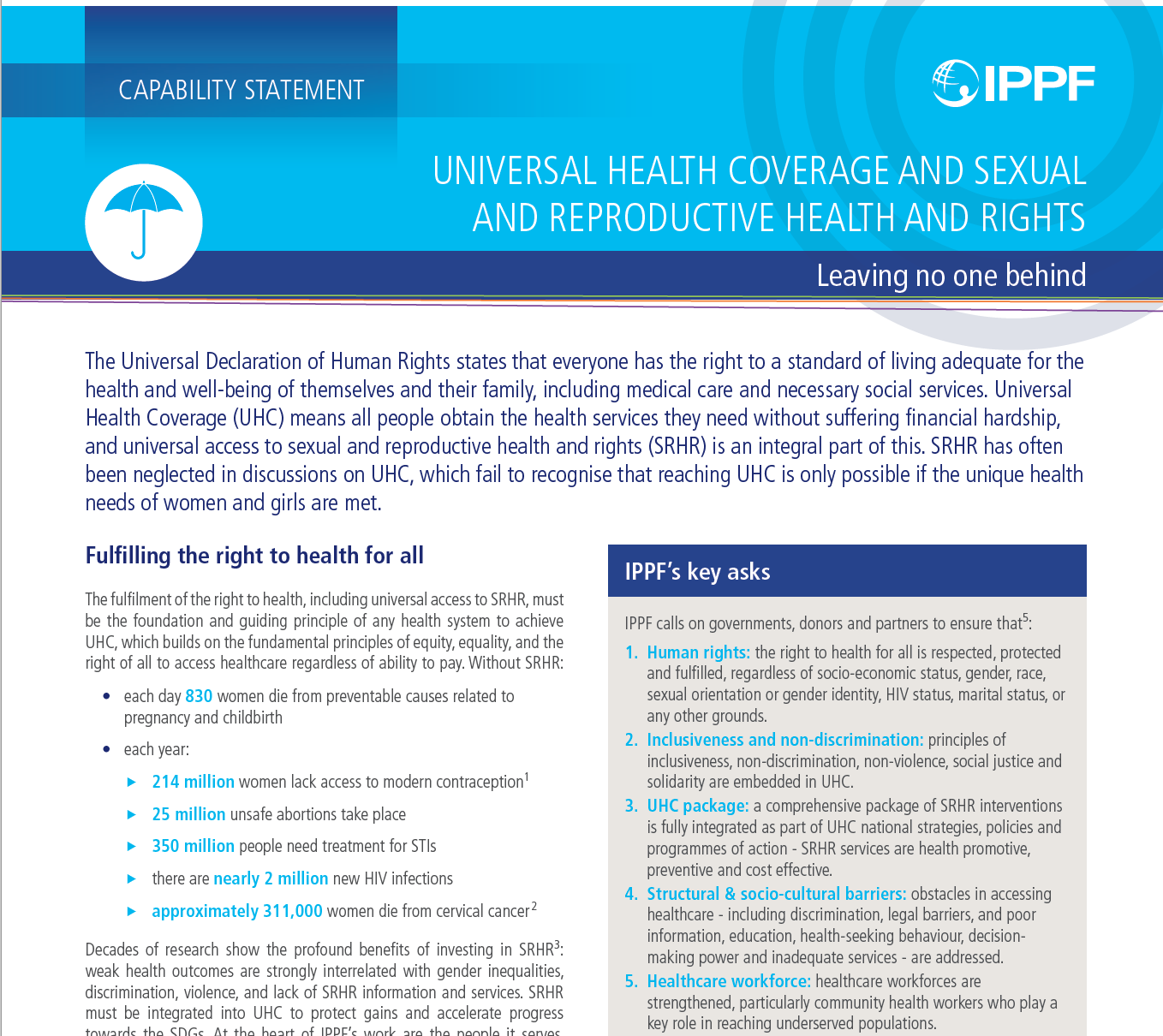
| 24 June 2019
Universal Health Coverage - IPPF Capability Statement
The Universal Declaration of Human Rights states that everyone has the right to a standard of living adequate for the health and well-being of themselves and their family, including medical care and necessary social services. Universal Health Coverage (UHC) means all people obtain the health services they need without suffering financial hardship, and universal access to sexual and reproductive health and rights (SRHR) is an integral part of this. SRHR has often been neglected in discussions on UHC, which fail to recognize that reaching UHC is only possible if the unique health needs of women and girls are met.







